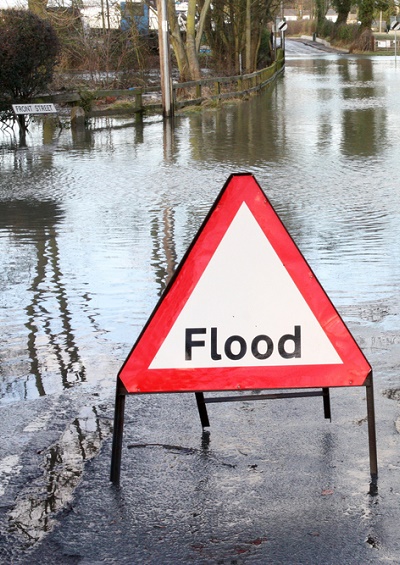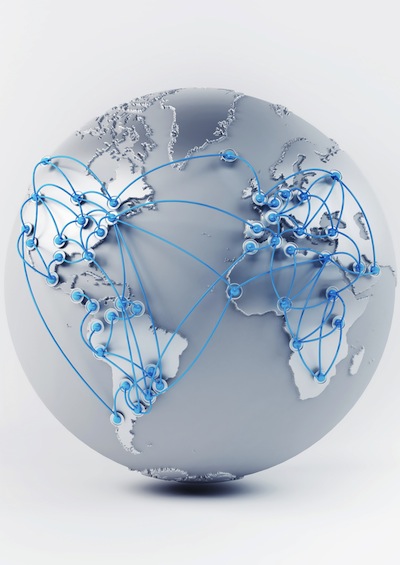Water as the Oil of the 21st Century
Water, water everywhere … and nowhere.
August 31, 2014

No matter how much you read about water, keep reading. Water is the key ingredient to our planet and today it is either in short supply or there is too much of it coming at one time. No matter where you live and where you travel, you will not be able to escape the power of H20.
Water occupies much of the coverage of events in the United States and around the world. California is under a severe drought with forest fires scorching the earth and crops wilting.
U.S. forces are raining down airstrikes over Iraq where thirsty Yazidis are trapped on a mountaintop at the same time that a strategic dam in Mosul holds back billions of gallons of water which can either provide positive good or, if breached by ISIS, could lead to massive flooding.
Flash foods from Boston to Bosnia
The United Kingdom has been pummeled by rain this past winter, causing record-breaking floods unprecedented high winds and waves, coastal damage and crop destruction.
Yet in China, there isn’t nearly enough rain. This summer has been the hottest in decades in China with only 4.4 inches of rain — 48% less than the same period in many years. Drought is threatening to ruin 1.3 million acres of farmland in agricultural regions throughout China.
In Africa, the recent outbreak of the Ebola virus has put a spotlight on the need for clean water. The virus, which has claimed hundreds of lives, is not spread through contaminated water (it is transmitted by wild animals and infected humans), but clean water is critical to caring for sick patients.
Inadequate clean water, separately, caused many diseases that reduce the capacity of people, mostly young children, to withstand any sickness. Diarrhea, which is often related to unclean water, causes 1.5 million deaths a year, according to the Centers for Disease Control. Most of the victims are children.
A source of conflicts and de-stabilization
Rapid population growth compounded by a flood of people relocating from villages to cities over the last four decades has resulted in rapidly increased demands for dwindling water supplies.
Yemen, located in a dry, arid region, is slated to be the first country to officially run out of water. Not only is annual rainfall low and not efficiently harvested, but Yemen does not have the finances to develop and support water desalination facilities. The quest for water exacerbates tensions in an already tense country.
Water is also among the biggest concerns for refugee camps as they continue to expand all over the map. In an unprecedented situation, the United Nations has declared four countries: Iraq, South Sudan, Syria and the Central African Republic as Level 3 humanitarian disasters.
For the first time since World War II, the number of refugees, asylum seekers and internally displaced people in the world exceeds 50 million. That puts an enormous burden on relief agencies and host countries to supply clean water — as well as food and medical supplies to those in need.
Water diplomacy
First, we need to stop seeing the water issues as isolated incidents and take a holistic view of the situation. Water is not just a crisis in one county or one country or one world region.
Water is an interlocking puzzle and we need to look at the big picture on supply, demand and water management. Water nightmares are bigger than a single nation. Without international collaboration around water, we all will sink.
Water diplomacy should be one of the highest priorities of the international community. Second, we need to advance research around climate change to nail down the relationship between volatile weather and water.
Let’s get away from the politics around climate and get back to the science. If the world is too hot or too cold, the result is that jet streams collide and currents lead us to wacky weather. Let’s make the connections and deal with them in rational ways, including rationing water if need be.
Last, we need better communications around water. From tsunamis to famines, we know there is simply too much or too little but often our local weatherman or woman does little more than show us scary videos and maps with competing arrows and bright colors.
Give us context. We need a road map to action.
This summer we all hope to enjoy the ocean. But as we take a dip, or take a sip, let’s think about this magnificent resource and how we protect it, preserve it, and promote it.
Takeaways
Inadequate clean #water causes many diseases that reduce the capacity of people to withstand sickness.
Yemen –located in a dry, arid region, is slated to be the first country to officially run out of #water.
#Water is an interlocking puzzle and we need to look at the big picture on supply, demand and water management.
Read previous

5 Facts: Global Jet Set
August 30, 2014
